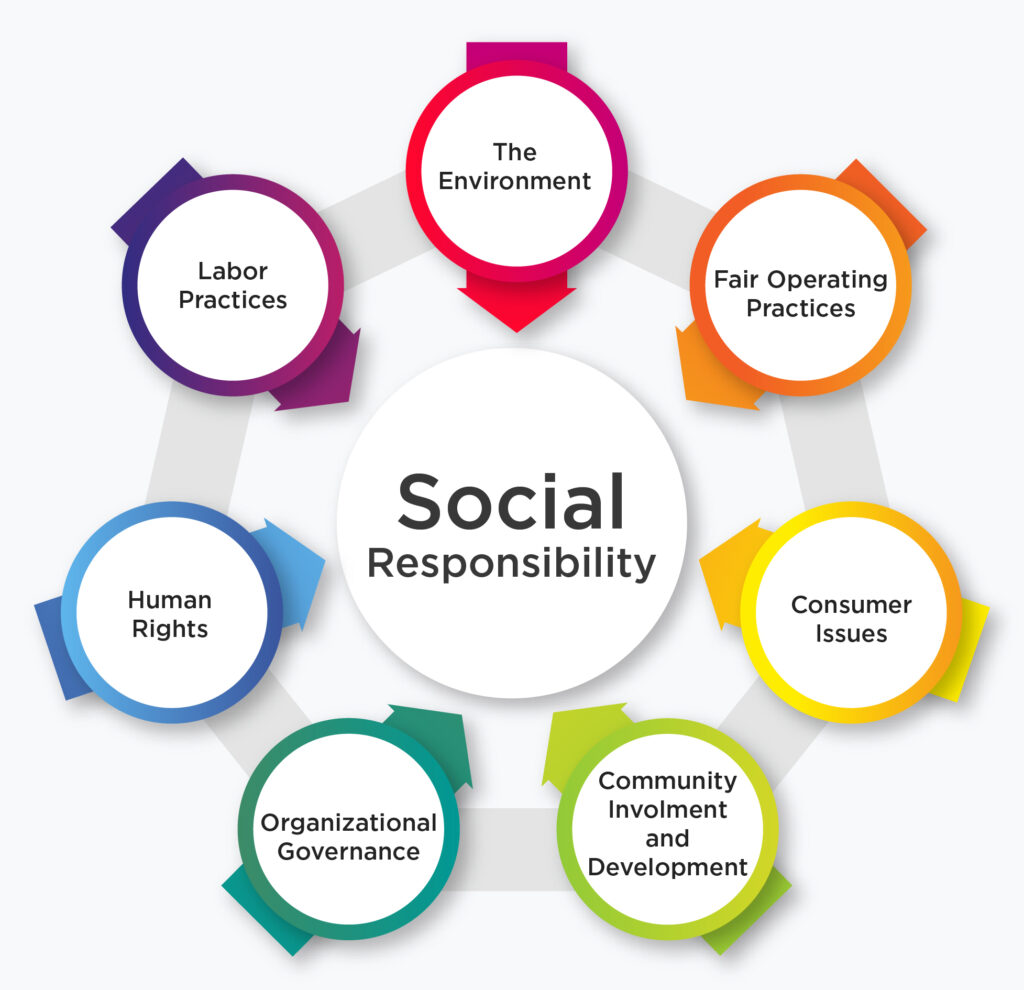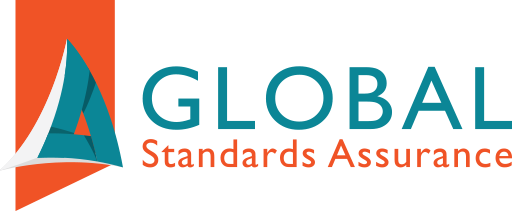Global Standards Assurance (GSA)
ISO 26000 promotes global sustainability -
An integrated framework for ethical practices
and social responsibility.
WHAT IS ISO 26000:2020
ISO 26000 is an international standard developed by the International Organization for Standardization (ISO) that provides guidance on social responsibility. ISO 26000 outlines principles and practices for organizations to integrate social responsibility into their operations and decision-making processes. It is not a certifiable standard like other ISO management system standards; rather, it serves as a comprehensive framework to assist organizations in recognizing and addressing their impact on society. The standard covers a broad spectrum of social responsibility aspects, including organizational governance, human rights, labour practices, environmental sustainability, fair operating practices, consumer issues, and community involvement.
ISO 26000 is designed to be applicable to organizations of all sizes and types, irrespective of their location or sector. It emphasizes the importance of stakeholder engagement and encourages organizations to consider the expectations and interests of a wide range of stakeholders in their social responsibility initiatives. By following the guidelines set out in ISO 26000, organizations can enhance their reputation, build trust with stakeholders, and contribute positively to sustainable development. The standard is a valuable tool for fostering ethical behavior, transparency, and accountability within organizations, ultimately promoting a more socially responsible and sustainable business environment.

ISO 26000 and Sustainable Development Goals
(SDG’s)
ISO 26000 and the Sustainable Development Goals (SDGs) converge in their shared commitment to fostering sustainable development and responsible business practices. The SDGs, established by the United Nations, provide a comprehensive blueprint for global challenges, outlining 17 interconnected goals to address social, economic, and environmental issues. ISO 26000 complements this agenda by offering organizations a practical framework to embed social responsibility into their operations. The standard’s emphasis on principles like stakeholder engagement, ethical behavior, and transparency aligns with several SDGs, such as poverty eradication, gender equality, responsible consumption, and climate action. By adopting ISO 26000, organizations can play a pivotal role in advancing specific SDGs and contribute to the broader global pursuit of sustainability and equitable development.
ISO 26000’s resonance with the SDGs is particularly evident in its universal applicability. The standard is designed to accommodate organizations of all sizes and sectors, echoing the SDGs’ call for inclusive and collaborative efforts. Through ISO 26000, businesses can actively contribute to the SDGs by integrating social responsibility into their decision-making processes. This not only enhances their positive impact on society and the environment but also promotes a culture of accountability and ethical conduct. The synergy between ISO 26000 and the SDGs underscores the interconnectedness of global efforts towards a more sustainable and socially responsible future.

WHAT IS ISO 26000 CERTIFICATION?
ISO 26000 serves as a guiding document rather than a certification standard, providing principles and guidelines for organizations to integrate social responsibility into their operations. While it doesn’t offer a specific certification process, organizations can voluntarily adopt the recommendations outlined in ISO 26000 to enhance their commitment to social responsibility. Many businesses choose to align their practices with ISO 26000 and communicate their efforts through avenues like sustainability reports or third-party certifications from organizations specializing in social responsibility. By doing so, organizations can demonstrate their dedication to ethical behavior, stakeholder engagement, and sustainability, even if ISO 26000 itself does not lead to a formal certification.
BENEFITS OF ISO 26000

Reputation Boost
ISO 26000 helps enhance corporate reputation through a structured approach to ethical practices, transparency, and accountability.

Stakeholder Trust
The standard promotes stakeholder engagement, building trust, loyalty, and support for the organization.

Risk Management
ISO 26000 aids in identifying and managing social, environmental, and ethical risks, ensuring resilience and sustainability.

Efficiency and Savings
Implementing ISO 26000 fosters operational efficiency, resource conservation, and cost savings.

Market Differentiation
Organizations aligning with ISO 26000 stand out by showcasing their commitment to social responsibility, attracting customers and partners with similar values.

Global Contribution
ISO 26000 aligns with global sustainability goals, enabling organizations to contribute to international benchmarks like the UN SDGs.
ISO 26000 ASSESSMENT PROCESS
ISO 26000 does not function as a management system standard and, consequently, does not facilitate certification. However, the Global Standards Assurance (GSA) offers a third-party independent assessment based on the ISO 26000 standard to acknowledge adherence to the guidance it provides. This assessment serves as a recognition of conformity to the principles outlined in ISO 26000. A successful assessment indicates that the organization has effectively implemented social responsibility practices as outlined in ISO 26000. This positive recommendation serves as a formal acknowledgment that the organization is aligning with international standards for ethical behavior, stakeholder engagement, and sustainability.
The positive assessment report is a crucial outcome as it provides external validation of the organization’s commitment to social responsibility. It can be used to communicate to stakeholders, including customers, investors, and the broader community, that the organization’s operations are in accordance with the principles of ISO 26000. This recognition not only boosts the organization’s credibility but also reinforces its reputation as a socially responsible entity.
FREQUENTLY ASKED QUESTIONS
ISO 26000 is a guidance standard for social responsibility. Unlike other ISO standards, it is not a certifiable standard but provides principles and guidelines for organizations to integrate social responsibility into their operations, covering areas such as human rights, labour practices, and environmental sustainability.
No, ISO 26000 itself does not have a certification process. It serves as a guiding document rather than a management system standard, and organizations cannot achieve formal certification against it. However, organizations can align with its principles and communicate their commitment through other means.
ISO 26000 offers benefits such as enhanced corporate reputation, stakeholder trust, and risk mitigation. It promotes ethical behaviour, operational efficiency, and aligns with global sustainability goals, making it a valuable framework for organizations committed to responsible business practices.
Implementation involves understanding ISO 26000, conducting a self-assessment, developing relevant policies, engaging stakeholders, and integrating social responsibility into daily operations. Consultation with experts and continual improvement efforts are essential for effective implementation.
ISO 26000 emphasizes the importance of stakeholder engagement throughout an organization’s decision-making processes. It encourages organizations to identify and consider the needs and expectations of various stakeholders, fostering better relationships and responsible decision-making.
Yes, organizations can integrate ISO 26000 principles with other ISO standards, such as ISO 14001 for environmental management or ISO 45001 for occupational health and safety. ISO 26000’s flexible nature allows for compatibility with various management systems, reinforcing a holistic approach to sustainability and responsibility.


